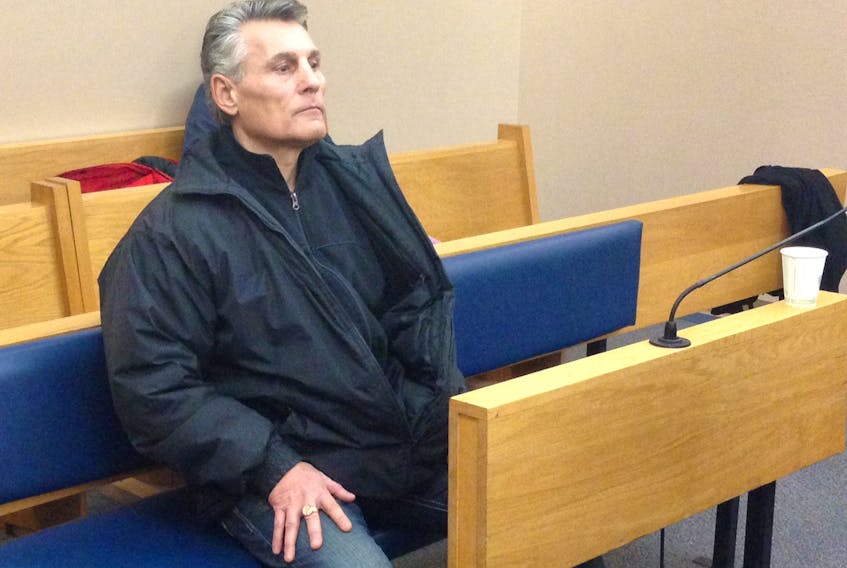A St. John’s judge will rule next month whether he will make an earlier-than-expected verdict to place a man, known as the “Sleepwatcher,” on stringent conditions while he lives in this province.
Judge Mike Madden heard lawyers’ arguments Friday at provincial court regarding a defence motion for a directed verdict in Barry Edward Sinclair’s hearing.
The 55-year-old Sinclair isn’t facing any criminal charges, but is the subject of an RNC-filed application that seeks to have him placed on a recognizance under Section 810.2 of the Criminal Code of Canada — a preventative measure meant to restrict the movements and behaviour of an individual who police believe would likely commit a serious crime.
The RNC believes Sinclair, an ex-convict, will commit a “serious personal injury” offence against women, and wants him to adhere to certain conditions as a way of protecting the community.
The 810.2 hearing began earlier this month, with the Crown’s only witness, RNC Const. Stephen Picco, taking the stand. After Picco’s testimony, when the hearing was only half over, defence lawyer Ellen O’Gorman asked that the judge render his decision before all the evidence was presented.
Madden opted first to hear arguments as to why he should make the directed verdict.
The arguments centre around whether Sinclair’s most recent offence — a break and enter — is considered a serious personal injury crime, as defined in the Criminal Code of Canada.
Sinclair’s criminal record includes convictions for trespassing at night in 2012, criminal harassment in 2002, being unlawfully in a dwelling in 1992 and a sexual assault conviction in 1987.
However, his latest conviction was in February 2013, when he was given a five-year jail term, with a year’s credit, for a break and enter with intent conviction in Halifax. While five counts of voyeurism were dismissed, police say the break-in had a “voyeuristic aspect” to it and that he intended to watch a woman.
Crown prosecutor Jennifer Colford says Sinclair’s most recent crime is considered a serious personal injury offence. She said while there was no physical violence involved, one aspect included in an 810.2 application is that the offender would “likely” commit a serious personal injury crime.
Colford argued that break-ins, coupled with the act of watching people while they sleep in their bedrooms, would likely cause severe psychological harm to victims.
“It’s bad enough to have someone enter your home and go through your things, but a bedroom is a particular place of sanctuary,” Colford said.
“It’s the most private area of your home … a place where you expect the utmost privacy.”
She said when it comes to break-ins, there is also the risk of the situation turning violent if the homeowner sees the intruder.
However, O’Gorman said there are not enough grounds to believe Sinclair will commit a serious personal injury crime.
She pointed out that while a break-in, like many crimes, can result in a psychological impact to the victim, Sinclair’s actions didn’t reach the point where it caused severe psychological damage.
Reading from the judge’s decision from Sinclair’s last sentencing in Halifax, O’Gorman said the break-in did not cause “particular trauma or upset to the victim” and noted there was “no violence or threat of aggression.”
Madden will render his directed verdict on Feb. 23.
If he rejects the defence’s motion for a directed verdict, the hearing will continue, with the defence expected to present evidence.
Twitter: TelyRosie









